During his doctoral studies, Ben noticed that the skills he had acquired in improvisational theater helped him clearly communicate his scientific findings to an audience. Lectures became more lively and the message seemed to stick better with his listeners. This is not only the case in science. For proper functioning of a company, good communicational and people skills prove essential.
ERLNMYR can help out with
- A course on stage training,
- a workshop on pitching
- one-to-one coaching for public speaking,
- an unusual teambuilding.

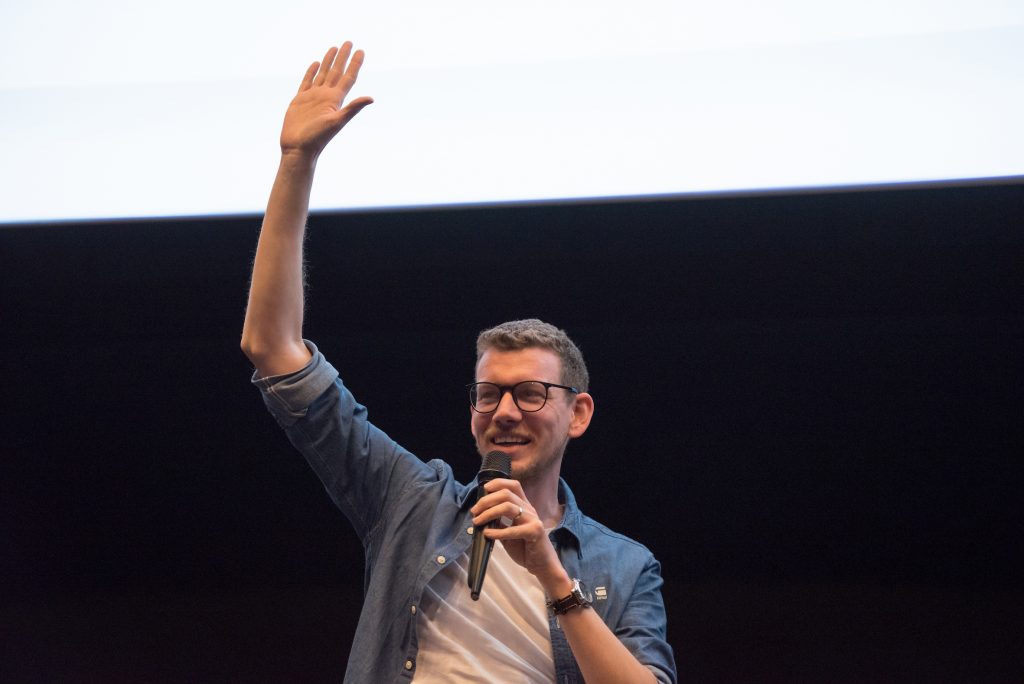
Presenting on stage
Standing on stage and interacting with an audience is not the average scientist’s cup of tea. And a wider audience is an entirely different experience than speaking to fellow experts in your field. In this workshop we will practice and improve our stage skills. There are technical skills such as being understandable, being visible and speaking with a microphone. And importantly, we will work on stage presence and connecting to the audience so you can comfortable address them. Your research deserves a stage!
ChatGPT as a creative partner for science communication
This is a workshop for scientists, researchers, and communicators to enhance their skills with AI language technology. You will collaborate with ChatGPT to generate natural language responses, brainstorm ideas, and develop compelling narratives. You will learn to evaluate the quality of language generated by ChatGPT and understand the ethical considerations. By the end of the workshop, participants will have gained practical skills and a deeper understanding of ChatGPT’s potential in science communication. This workshop is ideal for anyone who wants to explore the future of science communication with AI language technology.
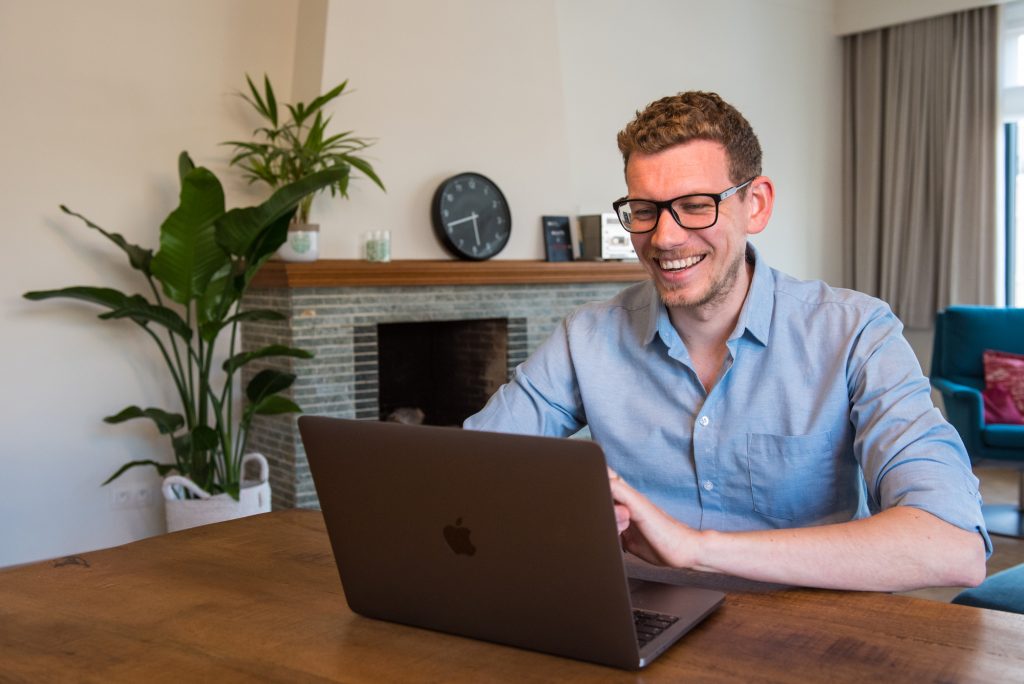
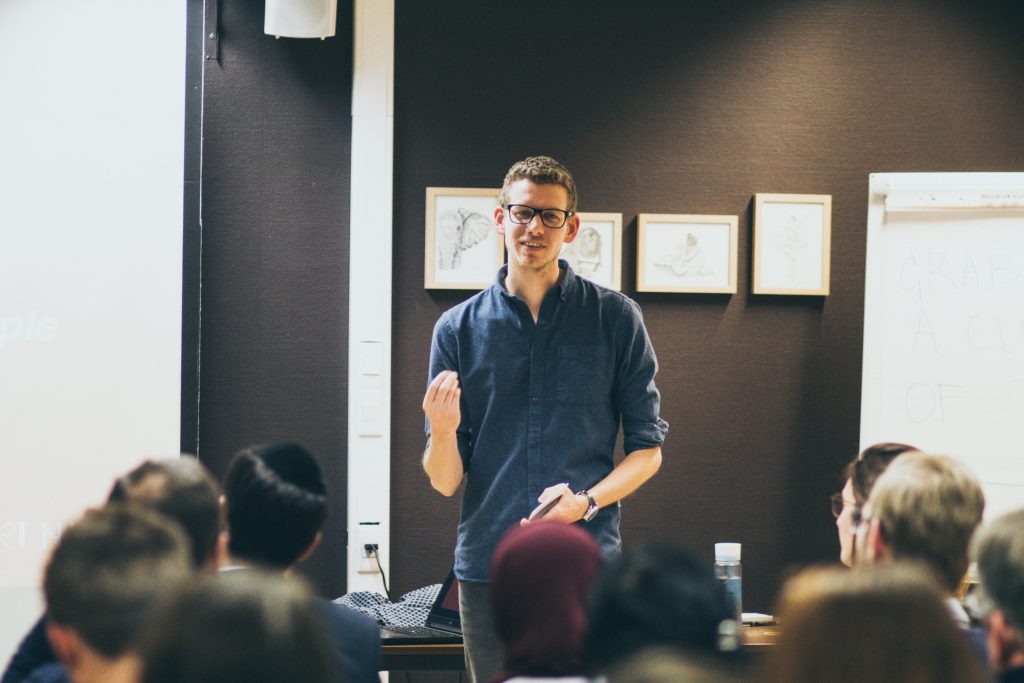
Presentation clinic
How do you engage a wider audience for an idea, project or scientific research? Try out your presentation on the test audience in this workshop and learn from the other participants. The constructive tips of doctor in linguistics Ben Verhoeven will support you where necessary. An idea for a class at kids’ university, a talk for the Science Slam or other form of science communication, we will work on it together. We’ll provide each other with a fresh look, creative support and constructive feedback.
Find the story of your research
Telling stories is a great way to communicate about your research. People’s brains are naturally interested in stories. And you don’t have to look far to find them, you can be the main character of your own research story. While talking about the things you did gets the facts across, adding colour and emotions to the action brings your story to life and makes the facts more memorable. In this workshop, you will learn about finding, structuring and telling the stories of your own research. Through improvisation and other exercises, we will explore different story structures, practice telling them, and bring them to the stage.
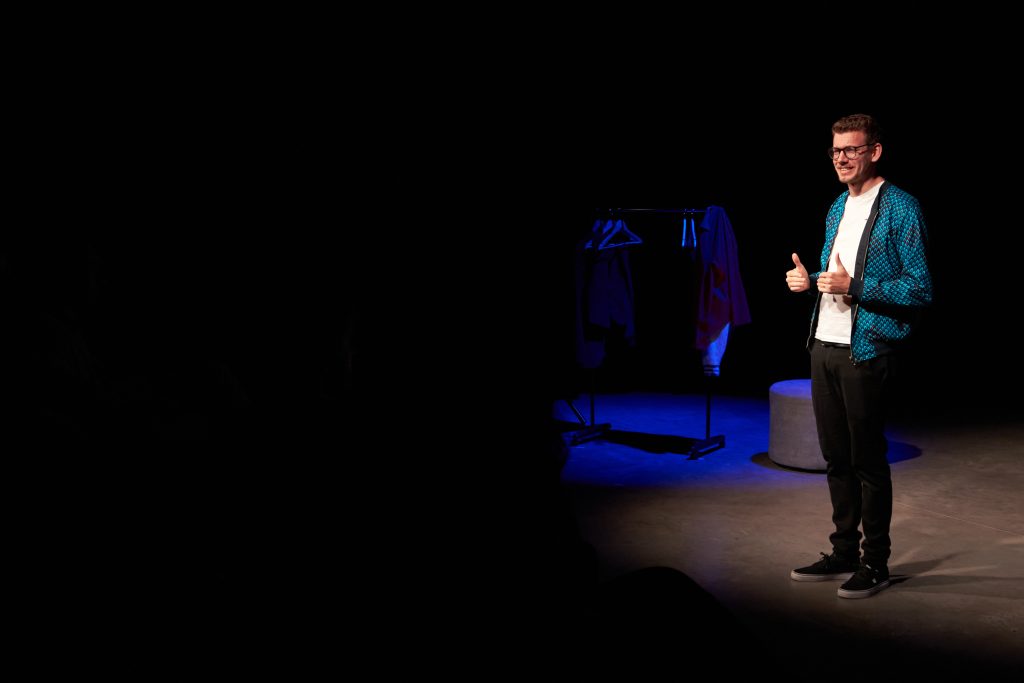
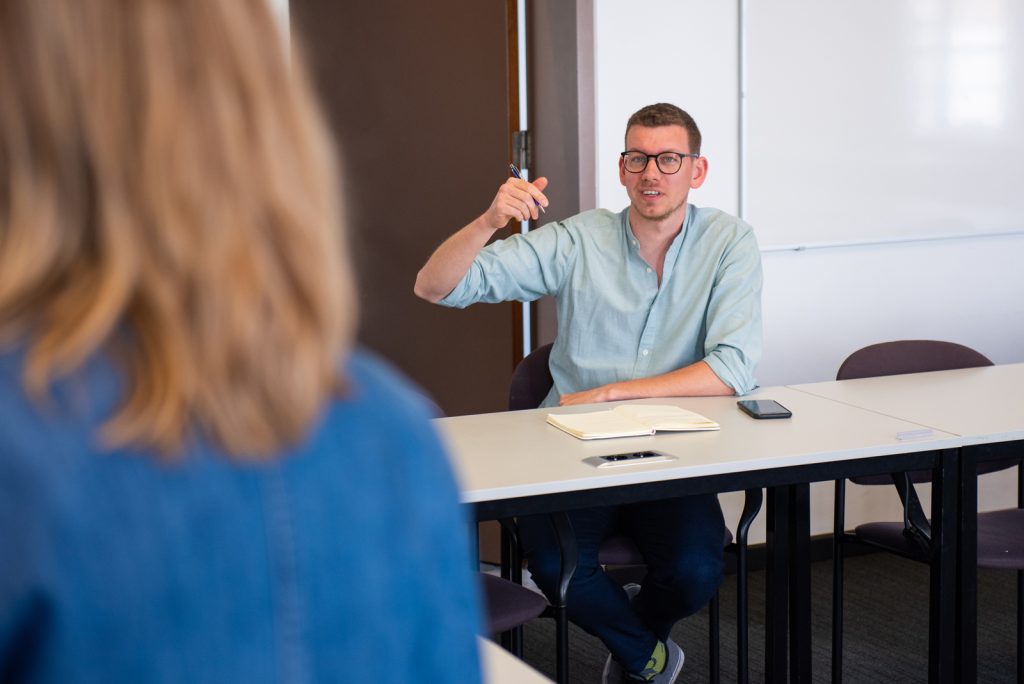
One-to-one coaching for public speaking
Preparing for an important presentation? About to defend your doctoral thesis or your application for a new project? Time to boost those public speaking skills with a more personal approach. Guided by the techniques we learn in improvisational theater, we get used to the idea of speaking to an audience. Ben will use his expertise as a science communicator and former researcher to fine-tune your presentation. The goal and end result of this personal course? Turning you into a confident public speaker and making your message crystal clear!
Collaboration and communication
Collaborating with fellow scientists comes in many different forms: attending a meeting with colleagues from the same research group, writing an article with co-authors or organizing the yearly Christmas party with other PhD students.
In this workshop, you learn how to position yourself in a constructive way, verbally and non-verbally, how you can find the best ideas together and what you can do in case of miscommunication. That way, you can get the most out of every collaboration.
In collaboration with Jenny Hasenack.
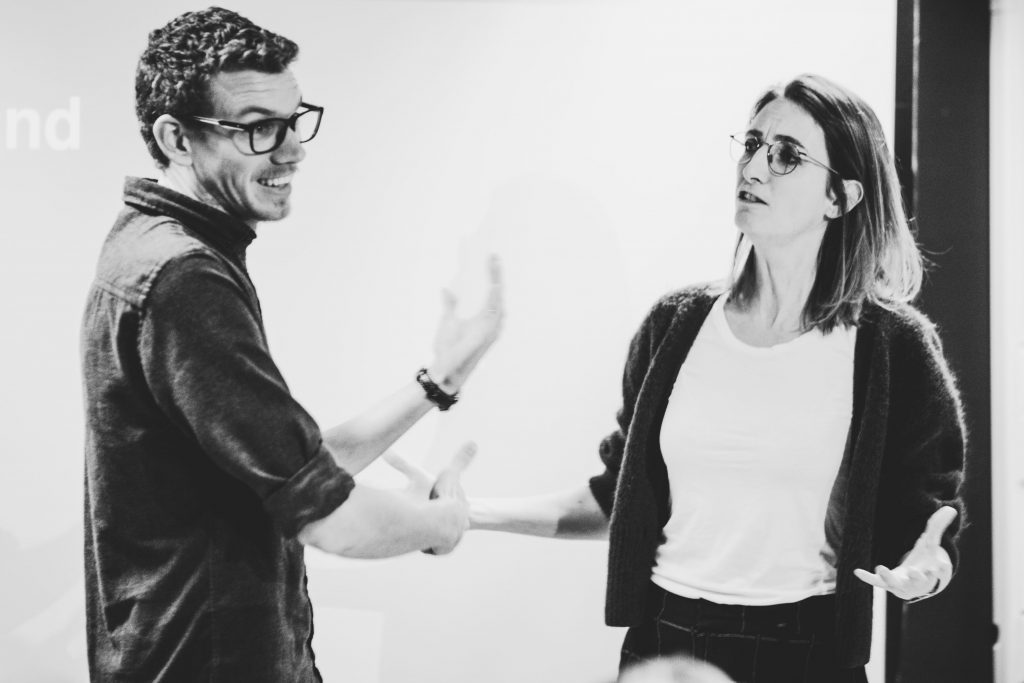
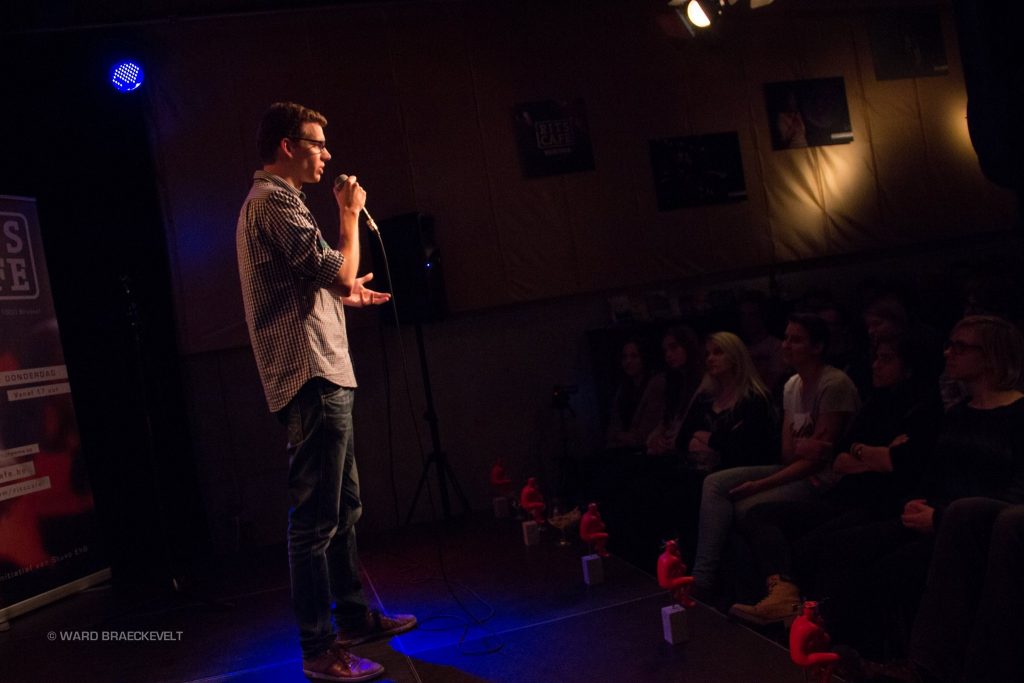
Pitch your research
Pitching requires grabbing the attention of your audience to get your message across in a just a short time. But who is your audience? Are you pitching a project to colleagues, convincing a funding agency or explaining your research to your family?
In this workshop, you will learn about communicating your research in a short pitch. By collaborating with each other and receiving repeated feedback, each of you will create a brand new pitch to introduce your research topic to colleagues, family, friends, and even their children.
An unusual teambuilding
All work and no play makes Jack a dull boy, so let’s turn down that work switch for a while. With a course in improvisational theater, you get to know your colleagues in an unusual and even hilarious manner. A playful approach to improvisation and an unforgettable teambuilding!

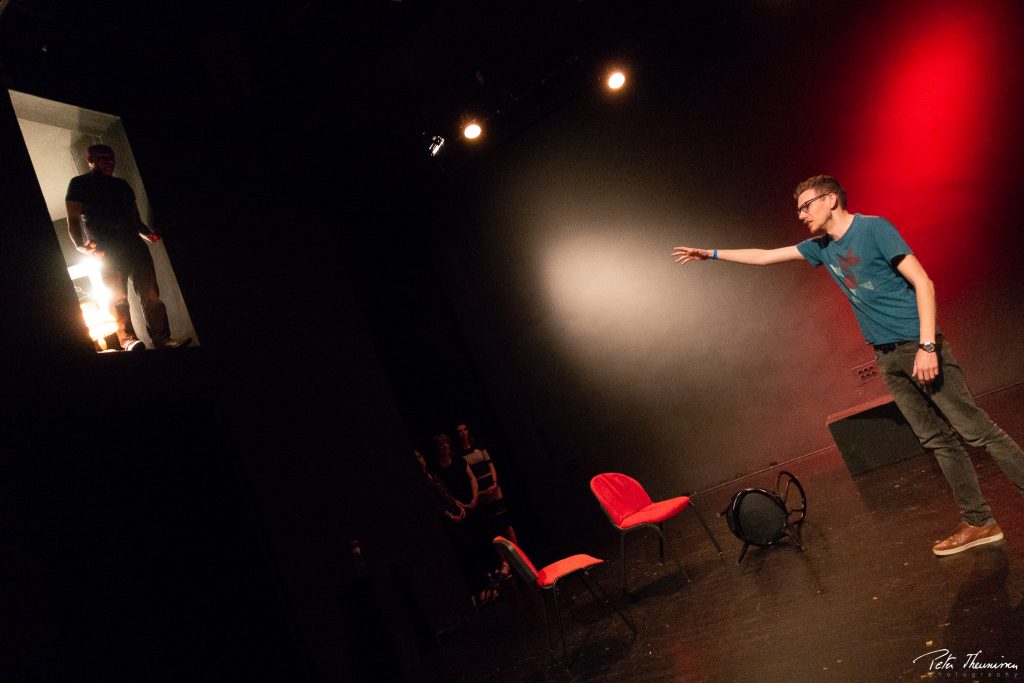
Improv for improvisers
Already passionate about improvisational theater? Then our range of artistic workshops is more your scene. These workshops are regularly taught within different groups, both in Belgium and abroad.
